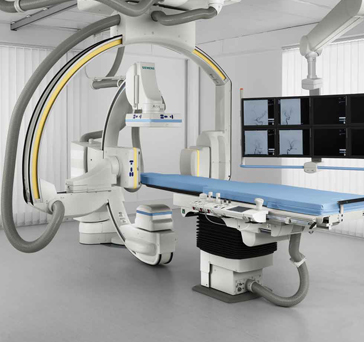
Interventional Radiology is a sub-specialty of Radiology that utilizes various imaging techniques to guide percutaneous minimally invasive procedures for both diagnosis and therapy.
In fact, Interventional Radiology could be termed “Pinhole Surgery” because of the small holes that are made in the skin to perform these procedures. Advantages to patients include less risk, less pain and shorter recovery times. Three broad categories under interventional Radiology are Vascular, Neurovascular and Non- vascular interventions.
Vascular interventions are about treatment of peripheral blood vessels like angioplasty, stenting, endovenous ablation of varicose veins, embolisations and management of vascular malformations. Neurointerventions offers endovascular treatment of cerebral arteriovenous malformations, intracranial aneurysms and intrarterial stroke therapy. Non vascular interventions offer biliary stent, drainage procedures, disc treatment, pain relief, and radiofrequency tumour ablation. Besides what is mentioned above Interventional Radiology encompasses many other procedures.
Lifeline Hospital, Mumbai has the highly sophisticated angiography equipment, it combines the facility of high resolution digital angiography, 3D Rotational Angiography with CT scan to deliver exact treatment and confirm the results in single equipment. By utilizing this unique facility highly accurate treatment is done by dedicated and experienced doctors.
